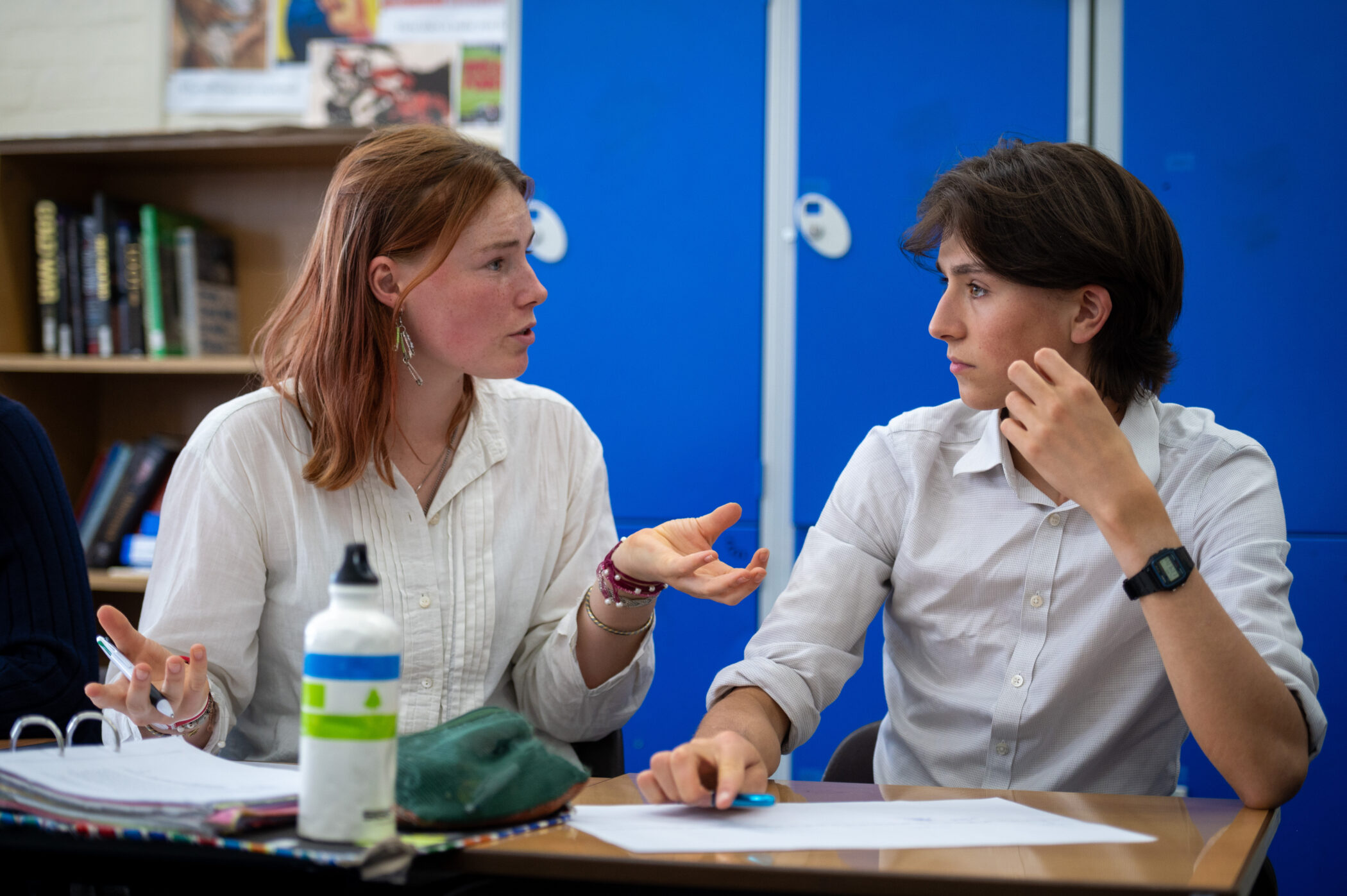Theology A-level
The Theology A-level course offers a uniquely broad and deep grounding in the liberal arts. Pupils will wrestle with some of the most pressing issues facing modern society: religious conflict; medical ethics; sex, gender and identity politics; and the perennial tension between the freedom of the individual and the power of the state. Pupils will build their analytical skills engaging with both contemporary problems and classic texts in the history of religious thought. The course is deliberately open, but affords the opportunity to tackle problems with rigour, encompassing theological, philosophical, historical and literary analysis. In a world increasingly beset by the competing claims of religious conservatism and secular humanism, of internationalism and isolationism, there has never been a more exciting or important time to study Theology: it is the up-to-the-minute subject.
What can I do with an A-level in Theology?
Absolutely anything. Theology A-level is equally popular alongside three other essay subjects as alongside three sciences (indeed, its strong ethical component means it is highly regarded by medical schools). It provides the analytical grounding for any degree in the liberal arts, humanities or social sciences, while the course content offers an obvious pathway towards Theology, Philosophy, PPE and Law at university. Those with Theology degrees go on to careers in everything from law and finance, to the civil service, management consultancy, journalism, broadcasting, the police, academia and teaching.
Extra curricular
Sixth Form Theologians have the benefit of an extensive extracurricular programme. In addition to our weekly Theology Society, which features talks from pupils, staff and visiting speakers from Oxford University and elsewhere, there are extension classes offered for those interested in exploring theological themes and texts beyond the A-level syllabus (chiefly aimed at those interested in studying Theology at University, but open to all). There are also trips within Oxford to public lectures and the Ashmolean Museum, as well as one annual trip abroad (recent trips have included Israel, Rome and Poland).
Course content L6
Paper 1: Philosophy of Religion
- Ancient Philosophy (Plato and Aristotle)
- Arguments for and against the existence of God
- The problem of evil and suffering for religious belief
- The nature and impact of religious experience
- Issues in religious language: is it possible to speak meaningfully about the divine within the limits of human language?
- Philosophical problems concerning the nature of God • The relationship between the mind and the body
Paper 2: Ethics
- Religious ethical theories: Natural Law (including the work of Aristotle and Aquinas) and Situation Ethics
- Secular ethical theories: Utilitarianism and Kantian Ethics • Applied Ethics: Euthanasia and Business Ethics
- The nature and origins of conscience and its role in moral decision making: theological and psychological approaches (Aquinas and Freud)
- Sexual Ethics
- Meta-ethics: the meaning of ethical language
Course content U6
Paper 3: Developments in religious thought
- Human nature (including Augustine and Sartre)
- Death and theories of the afterlife
- Knowledge of God’s existence
- The Jesus of history and the Christ of faith
- Religion, Ethics and Politics (including a study of Bonhoeffer)
- Secular challenges to religion: Freud, Dawkins, secular humanism
- Latin American liberation theology, including its use of Marx
- Gender and Theology, including Feminist Theology
- Religious Pluralism
Examination arrangements
Three exams, all to be sat in the Trinity term of the U6. Each is a 2 hour written paper, and the three are counted equally towards the final A-level grade.
- Paper 1: Philosophy of Religion
- Paper 2: Ethics
- Paper 3: Developments in religious thought
|
Suggested Preparation |
||
|
Any two of the below will provide excellent preparation for the first year of the A-level course: |
||
| Vardy, Peter | The Puzzle of God | 1999 |
| Vardy, Peter & Grosch, Paul | The Puzzle of Ethics | 1994 |
| Warburton, Nigel | A Little History of Philosophy | 2012 |
| Wilcockson, Michael | Issues of Life and Death (chapter 4 – on Euthanasia) | 2nd edition 2009 |
| Wilcockson, Michael | Social Ethics (chapters 3 and 5 – on Sexual Ethics and Social Ethics) | 2010 |
| Various |
Philosophy bites podcasts. |
|
|
Further Inspiration |
||
| Cottingham, John | Philosophy of Religion: Towards a More Humane Approach | 2014 |
| Malik, Kenan | The Quest for a Moral Compass: A Global History of Ethics | 2015 |
| Glover, Jonathan | Causing Death and Saving Lives | 1977 |
| Sandel, Michael | What Money Can’t Buy: The Moral Limits of Markets | 2012 |
| Edmunds, David & Eidinow, John | Wittgenstein’s Poker | 2001 |
| Boethius | The Consolation of Philosophy | c. 524 |
| Neiman, Susan | Evil in Modern Thought: An Alternative History of Philosophy | 2002 |
| Von Schirach, Ferdinand | Terror | 2015 |
| Vardy, Peter | The Puzzle of Christianity | 2016 |
| Knapp, Robert | The Dawn of Christianity: people and gods in a time of magic and miracles | 2017 |
 MCS ranks among the top independent secondary schools, and in 2024 was awarded Independent School of the Year for our contribution to social mobility.
MCS ranks among the top independent secondary schools, and in 2024 was awarded Independent School of the Year for our contribution to social mobility.

 28 of our pupils achieved 10 or more 8 or 9 grades in 2024.
28 of our pupils achieved 10 or more 8 or 9 grades in 2024.
 In 2023-24, MCS received over £448,000 in donated funds.
In 2023-24, MCS received over £448,000 in donated funds.

